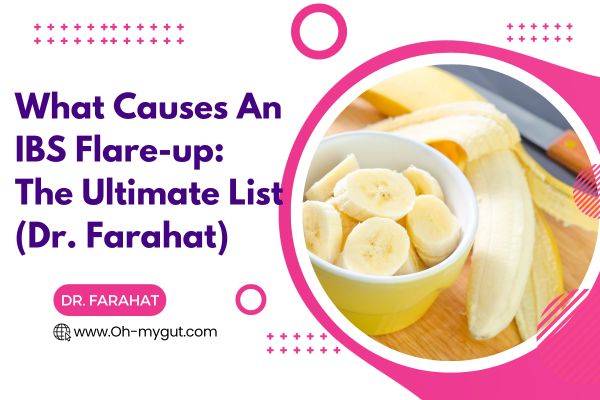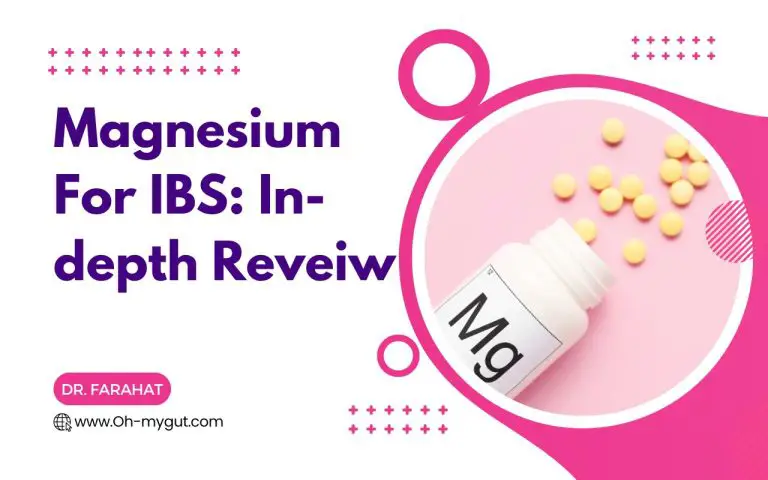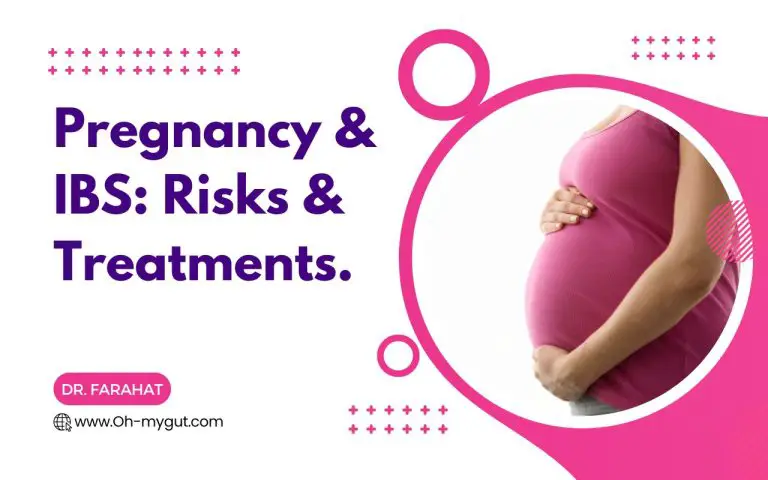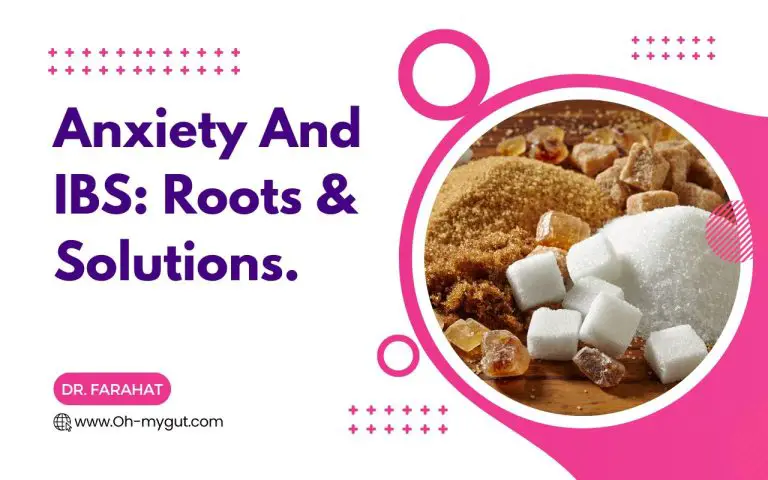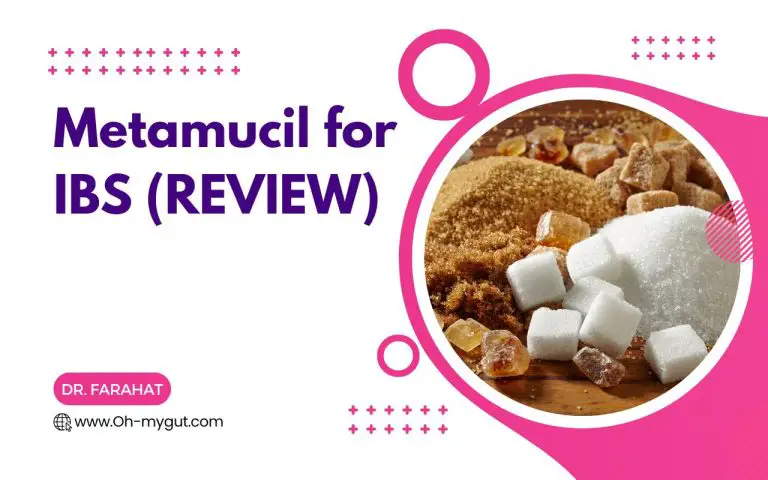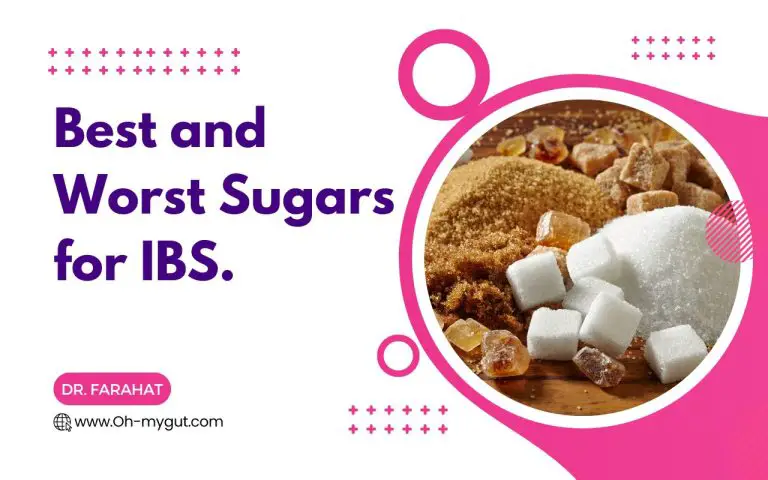Anxiety & IBS: Roots & Practical tips to Overcome it.
Our content is not intended nor recommended as a substitute for medical advice by your doctor. Use for informational purposes only.
Diving into the complex world of Irritable Bowel Syndrome (IBS) and anxiety, we untangle their intricate ties and offer a helping hand to those affected.
Your path to relief begins here, with a clear understanding of how anxiety and IBS interact and a practical guide filled with helpful solutions.
Key Summary:
- Anxiety and stress, while distinct, can both significantly impact IBS. Multiple anxiety disorders may contribute to IBS.
- Anxiety and IBS cyclically influence each other, with anxiety contributing to IBS by altering pain thresholds, gut motility, and bacteria and inducing inflammation.
- Anxiety can induce wide-ranging physical symptoms, including difficulties with breathing, sleep, concentration, restlessness, irritability, muscle tension, and even diarrhea.
- Anxiety significantly influences IBS symptoms, often triggering flare-ups, causing atypical symptoms during IBS attacks, and influencing the timing of IBS attacks.
- Self-reflection and consultations with medical professionals are crucial to identifying hidden anxiety that may exacerbate IBS.
- There are various actionable strategies to combat anxiety and IBS. These include boosting self-esteem and assertiveness, cognitive behavioral therapy, hypnotherapy, relaxation therapy, and medication (as a last resort).
I. Anxiety and IBS – Connections and Consequences
1. Understanding Anxiety and Stress
Anxiety and stress differ. Stress originates from external “stressors.” Conversely, anxiety is a persistent, internal state of unease and worry, irrespective of external stimuli. As per the National Institute of mental health (NIMH), anxiety impacts about 18% of American adults, while another estimate posits it affects a third of the population. Multiple forms of anxiety disorders exist, such as Generalized Anxiety Disorders, Specific Phobias, Panic Disorders, Social Anxiety, and PTSD, all of which may relate to IBS.
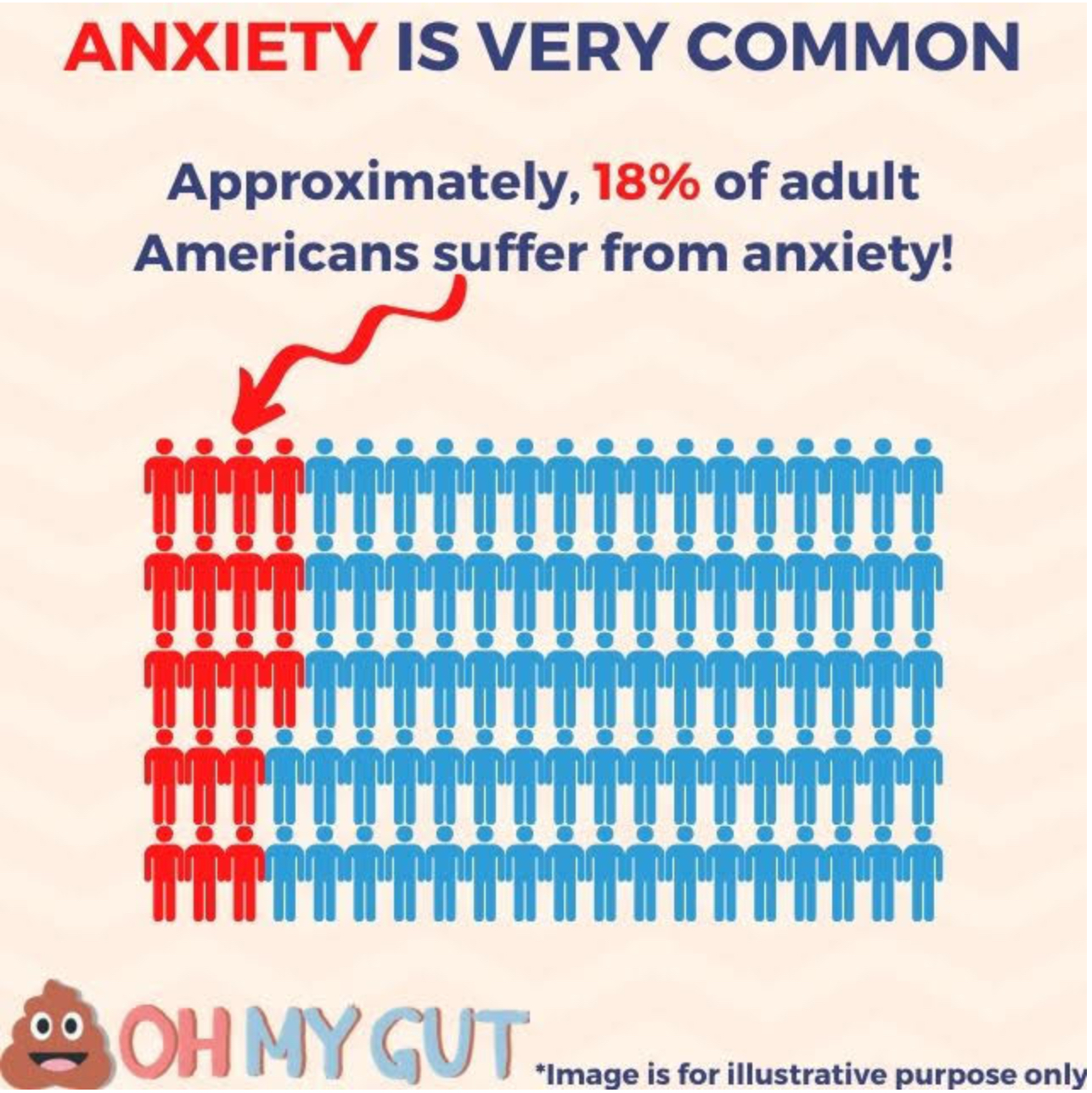
2. Interplay Between Anxiety and IBS
Anxiety and IBS interrelate, with psychological stress significantly contributing to IBS. A study reveals approximately 44% of IBS patients grapple with psychological issues, far higher than the non-IBS population (8%). Anxiety triggers IBS by sending signals from the brain to the gut, altering pain thresholds, gut motility, gut bacteria, and possibly inducing inflammation. Conversely, IBS can exacerbate anxiety due to gut-released chemicals affecting brain function and IBS symptom-induced health anxiety.
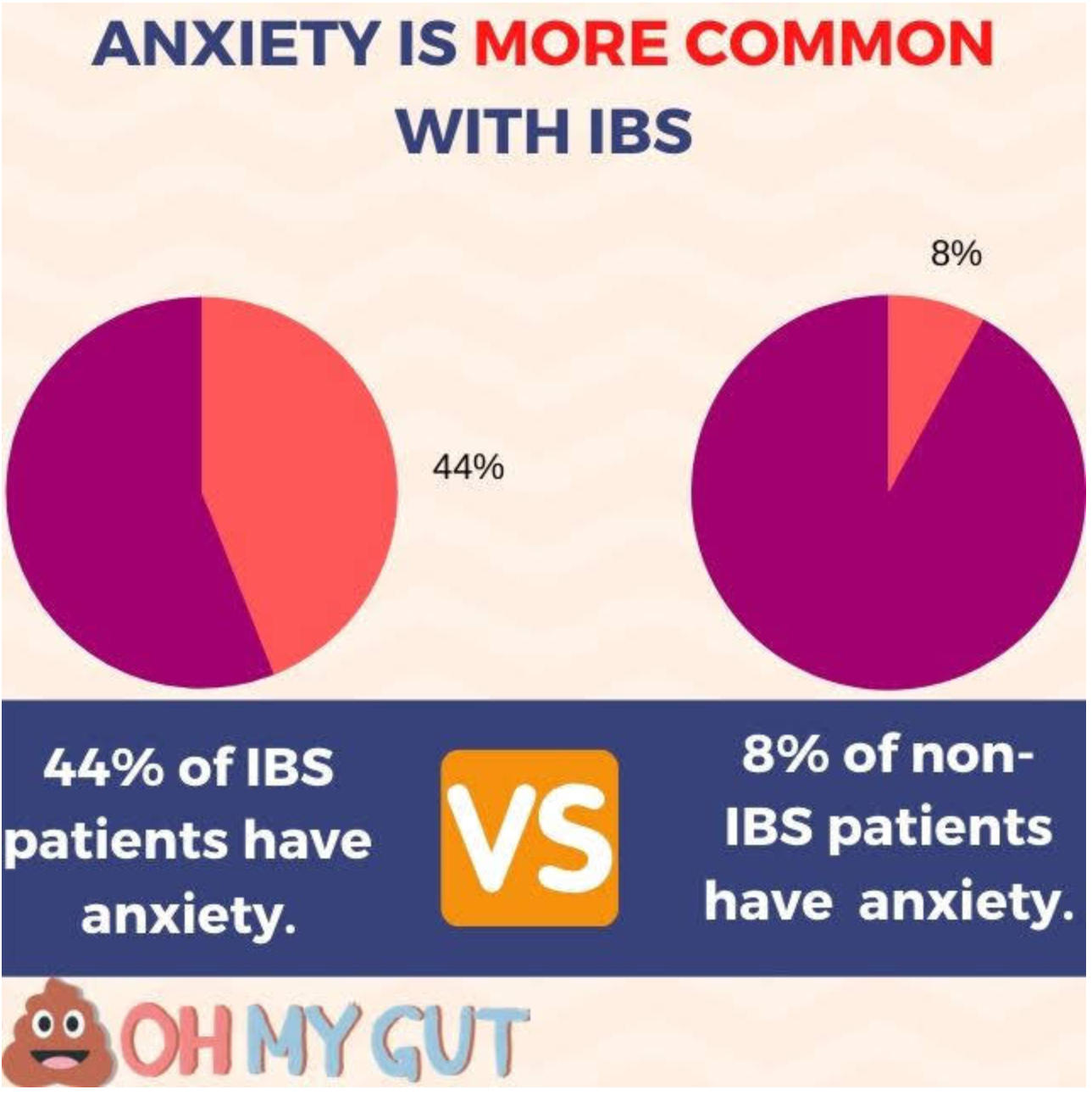
3. Effects of Anxiety on the Body
Apart from IBS, anxiety broadly influences your body. Symptoms include:
- Breathing difficulty, rapid heartbeat
- Sleep problems, constant fatigue
- Concentration issues
- Nervousness, restlessness
- Irritability, muscle tension
- Sweating, tremors
- Frequent urination, diarrhea
Overall, deciphering the primary trigger between anxiety and IBS depends on individual circumstances and the timing of onset. It’s crucial to consult with healthcare professionals for accurate diagnosis and management strategies.
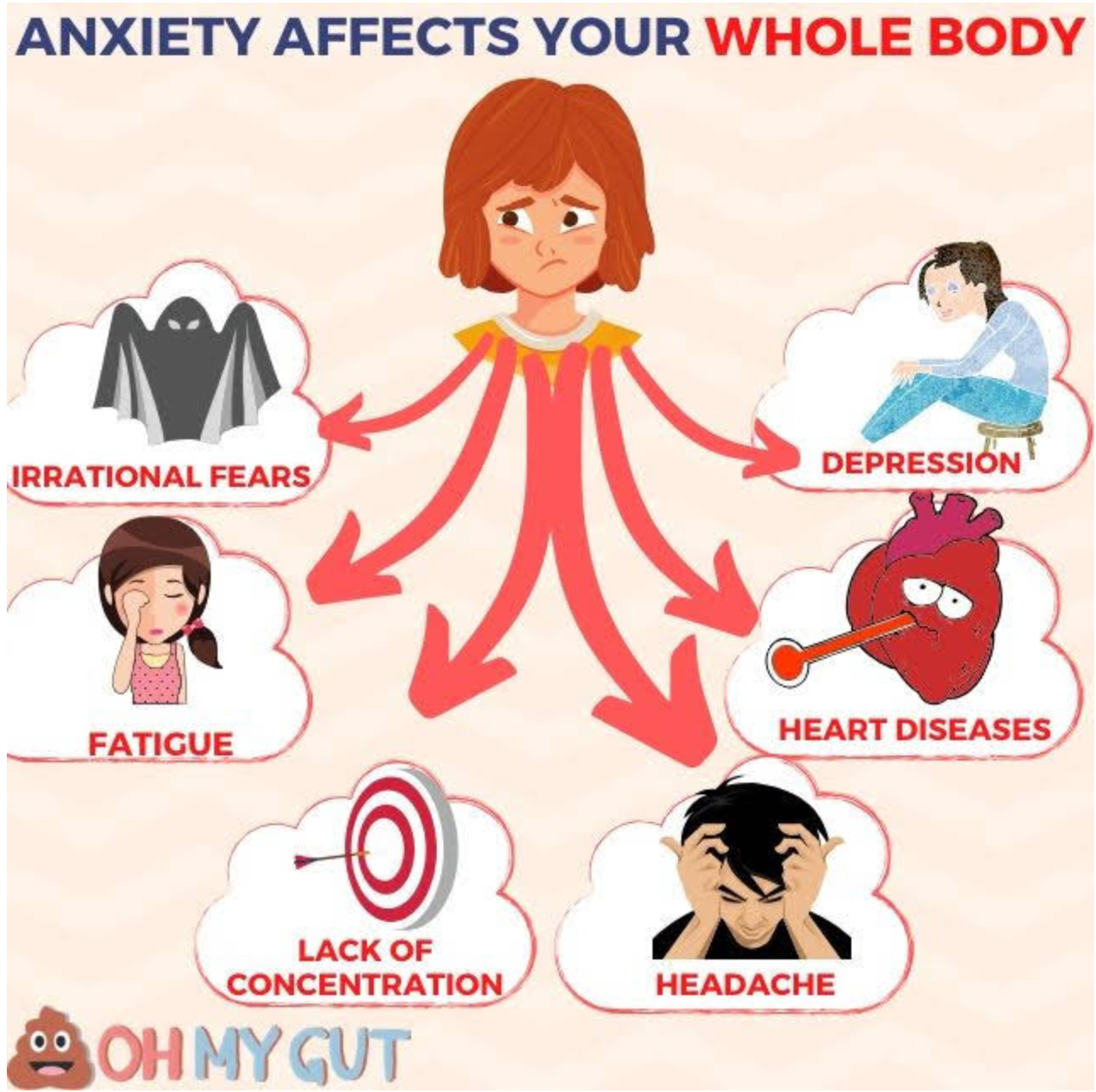
4. Anxiety’s Influence on IBS Symptoms
1- Anxiety Symptoms: Anxiety, indicated by irrational fears and worry, significantly contributes to IBS flare-ups. Other severe symptoms like irritability, insomnia, and fatigue, even panic attacks may coincide with IBS episodes.
2- Timing of IBS Attacks: Anxiety often precedes IBS attacks. For instance, IBS symptoms can surface during stressful situations such as exams or after experiencing unexplained fear or phobia.
3- Atypical IBS Symptoms: Anxiety may cause unusual symptoms during IBS attacks, like nausea, difficulty breathing, fatigue, restlessness, or atypical IBS pain locations such as back and pelvic pain.
4- Constipation or Diarrhea: Studies link anxiety to IBS-Diarrhea and IBS-Constipation. Although there is a slight predominance of IBS diarrhea with anxiety, all types of IBS can occur.
5- Bloating and Distension: Frequently, IBS and anxiety sufferers experience bloating, as anxiety reduces the pain threshold, making even small amounts of gas troublesome. For females, bloating can independently cause anxiety due to changes in body shape.
5. When to Seek Help?
You may have hidden anxiety influencing your IBS without realizing it. Thus, self-reflection and discussing your mood and stress effects with close friends, partners, or medical professionals are recommended.
To assess your anxiety, you can use the GAD-7 score [Reference]. However, this tool is for screening purposes only and doesn’t replace medical advice. It helps you identify if you need medical assistance for anxiety.
The GAD-7 score includes seven questions to evaluate your anxiety level. Visit mdcalc.com to answer these questions:
- Do I feel nervous, anxious, or on the edge?
- Can I not stop or control worrying?
- Am I worrying too much about everything?
- Do I have trouble relaxing?
- Am I so restless that it’s hard to sit still?
- Do I become easily annoyed or irritable?
- Do I feel afraid as if something awful might happen?
The answers are scored as follows:
Not at all = 0, Several days = +1, More than half the days = +2, Nearly every day = +3
Sum the points to determine your anxiety level:
5-9 points: Mild Anxiety, 10-14 points: Moderate anxiety, 15 or more points: Severe anxiety.
Take the test HERE.
If you suspect anxiety, consult your doctor for further evaluation. If anxiety exacerbates your IBS, consider seeking treatment to manage the condition.
II. Actionable Steps to Beat Anxiety with IBS:
Before you start:
Let’s cut to the chase. Before tackling your IBS anxiety, keep these six vital tips in mind:
1- Consult your doctor first. Handling anxiety needs professional insight. Let’s work with your doctor to determine how anxiety impacts your IBS.
2- Try basic IBS treatments before these alternatives. Over-the-counter or prescription meds can keep IBS in check. Only if they fail, consider the options below.
3- Go natural before medication. Cognitive behavioral therapy, relaxation therapy, and hypnotherapy are safer, cheaper, and often more effective than drugs.
4- Confirm your anxiety. Consult with your doctor and use the GAD-7 score, as explained in part one of this guide.
5- Accept that no treatment is foolproof. What works for you may not work for others. Experiment with treatments (the right way) and discover what’s effective.
6- Combine treatments for best results.
[1] Self-Esteem & Assertiveness: Your Secret Weapons
Anxiety often comes with low self-esteem. Recognize the signs: feeling unworthy, overly critical, unable to express feelings, fear of change. This study reveals IBS sufferers have significantly lower self-esteem.
Try these action-oriented tips: be assertive and kind to yourself, learn to say “NO,” ask others for help, and consider cognitive behavioral therapy. Check out Raising low self-esteem (NHS UK) for more info.
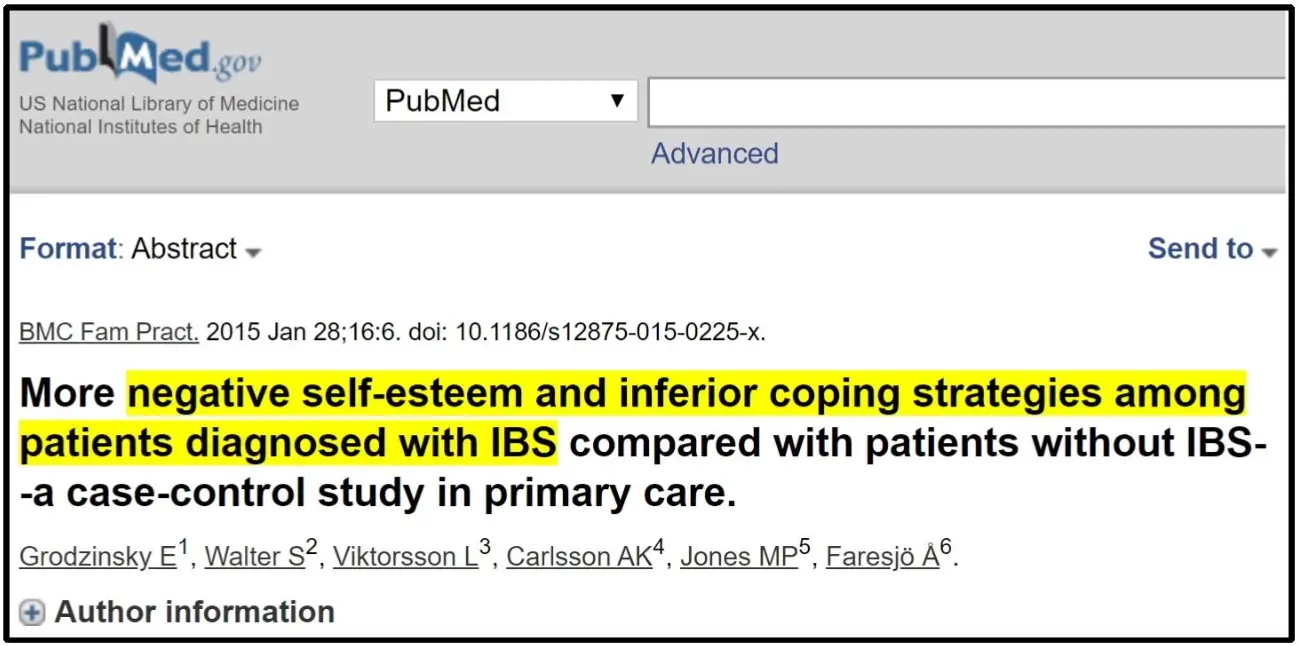
Practical tips to boost self-esteem:
- Daily Affirmations: Look in the mirror every morning and remind yourself of your worth and strength. Make a list of affirmations like, “I am enough, “I can handle what comes,” and “I am stronger than IBS.”
- Journaling: Keep a self-esteem journal. Write about your daily wins, no matter how small. This helps you see your progress and remind you of your capabilities.
- Boundaries: Learn to assert your boundaries. This means saying “no” when something doesn’t serve you and standing up for your needs. Practice this with small, daily actions.
- Ask for Help: Be bold about asking for help. Whether it’s talking about your struggles with a close friend or seeking advice from your doctor, open up.
[2] Cognitive Behavioral Therapy (CBT): Your Anxiety’s Nemesis
CBT is a powerful weapon against anxiety and IBS. It’s all about changing your destructive thoughts to improve your behavior and feelings.
CBT works great for IBS & anxiety sufferers. I recommend trying it if your IBS persists despite medication, if stress affects your IBS if you’ve discussed CBT with your doctor, or if IBS drugs cause unbearable side effects.
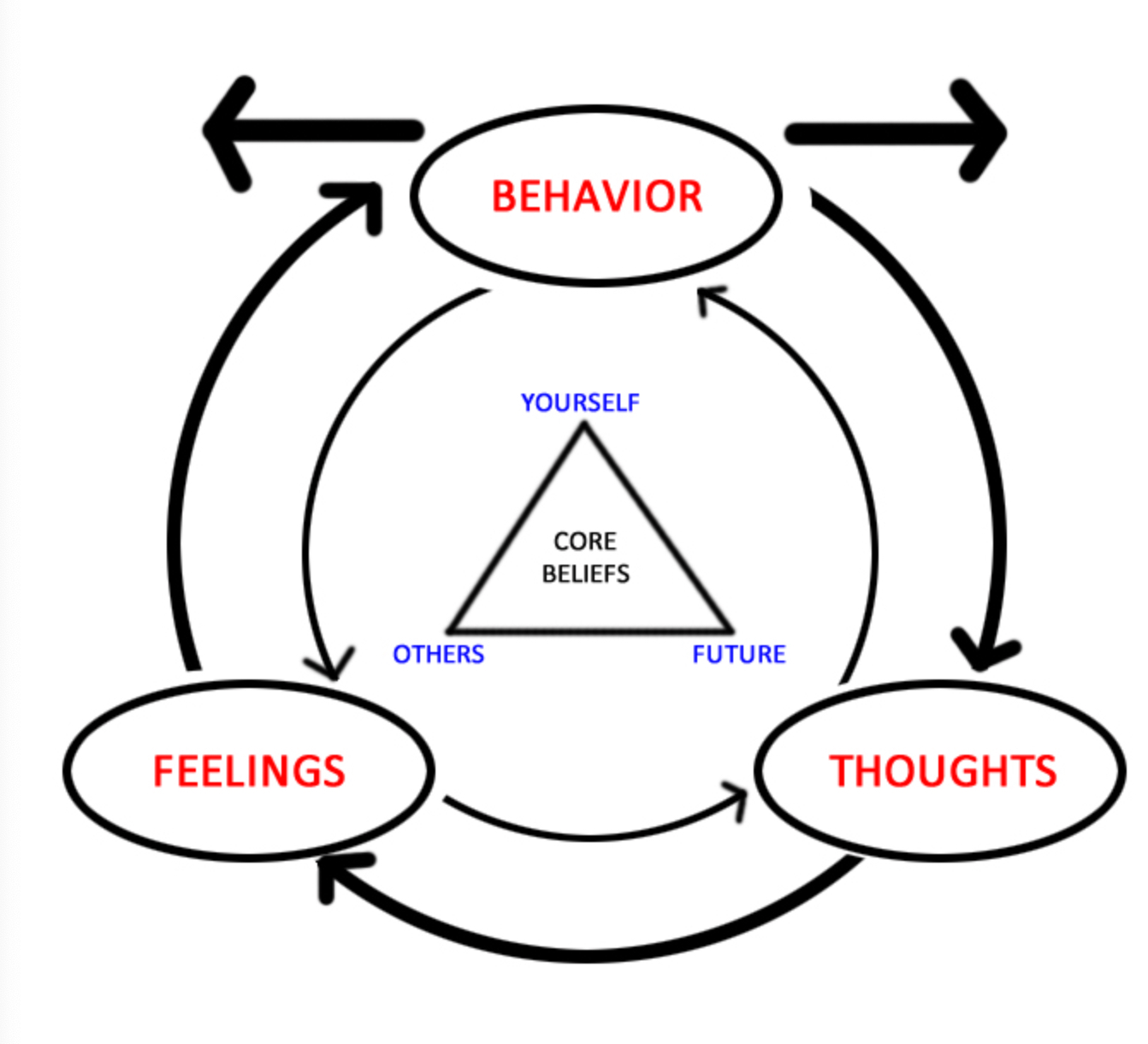
You can opt for in-person, online, or self-help CBT, but personal therapy with a certified professional yields the best results. Online CBT is a convenient and less intimidating option. Just avoid the DIY approach to prevent losing faith in CBT. For online CBT, check out “online-therapy.com. “
[3] Hypnotherapy: Unlock Your Inner Healing
Clinical trials endorse hypnotherapy for IBS and anxiety. This clinical trial reports promising results.
Practical Steps:
- Choose a Licensed Hypnotherapist: Use the hypnotherapist database to find a certified practitioner in your country.
- Consistent Sessions: Schedule regular sessions for maximum effect.
- Active Participation: Engage fully during sessions. This means leaving skepticism at the door and opening yourself up to the experience.
- Use Self-Hypnosis Apps: If in-person sessions aren’t possible, try self-hypnosis apps.
[4] Relaxation Therapy: Chill Out Your IBS
Relaxation therapy can ease your IBS anxiety, as per this study. Even though the evidence isn’t robust, give it a shot.
Learn diaphragmatic breathing, progressive muscle relaxation, and positive imagery. Be patient with the process. For more on relaxation techniques, read this informative article.
Best relaxation techniques include:
- Breathe: Set aside 5 minutes every day for diaphragmatic breathing. This technique involves deep breathing, focusing on expanding your diaphragm rather than your chest.
- Muscle Relaxation: Learn progressive muscle relaxation, where you tense and then release each muscle group.
- Visualization: Engage in visualization exercises. Imagine a calming place or situation. Explore the details in your mind.
[5] Anti-Anxiety Meds: The Last Resort
Tricyclic Antidepressants and Selective Serotonin Reuptake Inhibitors (SSRIs) can help. Remember, these should only be used under medical supervision when other techniques fail.
FAQs:
Can long-term anxiety cause IBS?
Yes, it can. When you’re anxious for a long period, your body is often on high alert, which can mess with your digestion. This might lead to IBS symptoms. But keep in mind, IBS is a tricky condition that probably comes from a mix of your genes, your environment, and your mental state.
Can Anxiety cause an IBS flare-up?
Absolutely, anxiety can trigger an IBS flare-up. When we’re anxious, our bodies respond by altering various physical processes, including digestive function. This can lead to an increase in bowel movements, diarrhea, constipation, and other IBS symptoms.
What is the best medication to beat anxiety with IBS?
There’s no perfect pill that works for everyone. The best treatment will really depend on what symptoms you’re dealing with, how severe they are, and your overall health situation. Some people might find that drugs for anxiety like SSRIs (Selective Serotonin Reuptake Inhibitors) or meds to manage IBS symptoms like antispasmodics help them. But remember, it’s really important to talk to your doctor about all your options before you start any new medicines.
Can IBS-Diarrhea be caused by anxiety?
Yes, anxiety can contribute to IBS-Diarrhea. Stress and anxiety can stimulate colon activity, leading to loose, urgent stools—a hallmark of IBS-Diarrhea. However, other factors such as diet, gut microbiome, and inflammation can also play a significant role. It’s always best to seek medical advice if you’re experiencing persistent diarrhea or other changes in bowel habits.
- Evidence-based
- Written by a doctor.

